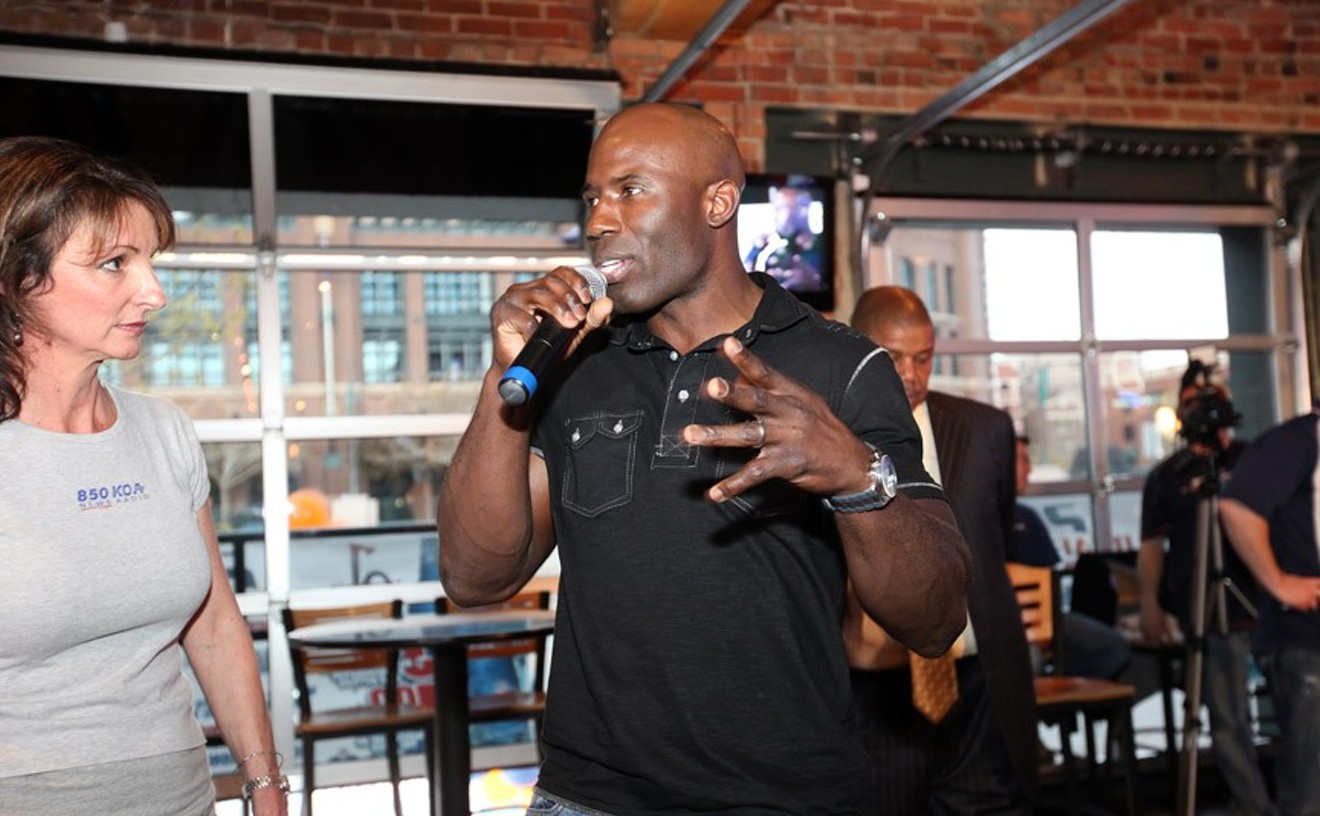With a temporary restraining order restricting how and when law enforcement can use "less-lethal" force against protesters in Denver set to expire on June 19, a federal judge has told both sides involved in the legal dispute that they must make a real attempt to come to an agreement before he takes more action.
"The Court will not consider further relief until counsel certify that they have conferred, in person or by telephone, and that they have attempted in good faith to reach a stipulated order that reasonably assures that peaceful protesters in the future will be protected against inappropriate police response and that reasonably assures that police officers will be able to take reasonable actions to protect themselves, the public, and property," Judge R. Brooke Jackson of the U.S. District Court of Colorado wrote on June 17.
At the same time, Jackson denied both a motion for an extension of the temporary restraining order he'd issued June 5 and a motion for a preliminary injunction filed by attorneys representing the four plaintiffs who are suing the City of Denver over alleged law enforcement misconduct during the George Floyd protests.
"The parties, if they set aside the extremes on both sides, should be able to reach an agreement that accomplishes mutually desired goals. If the parties, despite their respective statements that they have similar goals, cannot reach an agreement, then they may submit their respective proposed orders, and the Court will likely enter the order or a version of it that is the most reasonable," Jackson concluded.
The temporary restraining order requires law enforcement officers to make a loud announcement that they're going to use less-lethal munitions, like tear gas or pepper spray; officers must then give protesters a chance to disperse before employing the weapons. Any use of less-lethal force requires approval of an on-scene officer at the level of lieutenant or above. Additionally, law enforcement must have their body-worn cameras on during any interaction with protesters.
But while this order was viewed as a win by the plaintiffs and their attorneys, it expires two weeks after it was issued. And the end of the federal court order happens to coincide with Juneteenth, which observes the day in June 1865 when enslaved African-Americans in Texas received official word from Union soldiers that they were free.
"Where there is an expectation of additional in-person demonstrations over the holiday weekend, [that] would undermine the purpose of the temporary restraining order and allow the police to again 'pick up their weapons' to squelch peaceful and constitutional speech and assembly," lawyers Milo Schwab and Ross Ziev wrote in their June 16 motion asking that Jackson's order regarding less-lethal weapons be extended.
Such an extension would aid the "peacekeeping efforts between demonstrators and police and keep the city free from the threat of excessive use of force that previously limited Plaintiffs’ ability to freely express their political opinions," the lawyers said.
In its June 17 motion asking the judge to deny that request, the Denver City Attorney's Office said that extending the order would be inappropriate because circumstances have changed: Protests have become peaceful in recent weeks, a stark contrast to the tense clashes between protesters and law enforcement in late May.
The lawyers representing the plaintiffs argue that there's a correlation between the violence and law enforcement's excessive use of less-lethal weapons, while city officials say that violence initiated by some people at the protests is what led to the forceful police response during the early days of the demonstrations.
Denver's lawyers also point out that a sweeping police reform and accountability bill passed by the Colorado Legislature just days ago places restrictions on the use of less-lethal munitions against protesters; these restrictions were taken directly from the Judge Jackson's June 5 temporary restraining order. But until Governor Jared Polis signs the bill in to law — which he's made it clear he intends to do — those restrictions won't be in place statewide.
In the meantime, rather than issue a new ruling, Jackson simply told the two sides to get together and work toward a resolution.
And it looks like the city will accept at least some of the temporary restraining order's stipulations as protocol going forward.
During a June 17 Denver City Council safety committee hearing, Murphy Robinson, the executive director of the Department of Public Safety, told councilmembers that his department is looking at how to implement the requirements of the temporary restraining order "across the board" and "continuously."
[
{
"name": "Air - MediumRectangle - Inline Content - Mobile Display Size",
"component": "12017618",
"insertPoint": "2",
"requiredCountToDisplay": "2",
"watchElement": ".fdn-content-body",
"astAdList": [
{
"adType": "rectangle",
"displayTargets": "mobile"
}
]
},{
"name": "Editor Picks",
"component": "17242653",
"insertPoint": "4",
"requiredCountToDisplay": "1",
"watchElement": ".fdn-content-body",
"astAdList": [
{
"adType": "rectangle",
"displayTargets": "desktop|tablet"
},{
"adType": "rectangle",
"displayTargets": "desktop|tablet|mobile"
}
]
},{
"name": "Inline Links",
"component": "18838239",
"insertPoint": "8th",
"startingPoint": 8,
"requiredCountToDisplay": "7",
"maxInsertions": 25
},{
"name": "Air - MediumRectangle - Combo - Inline Content",
"component": "17261320",
"insertPoint": "8th",
"startingPoint": 8,
"requiredCountToDisplay": "7",
"maxInsertions": 25,
"watchElement": ".fdn-content-body",
"astAdList": [
{
"adType": "rectangle",
"displayTargets": "desktop|tablet"
},{
"adType": "rectangle",
"displayTargets": "desktop|tablet|mobile"
}
]
},{
"name": "Inline Links",
"component": "18838239",
"insertPoint": "8th",
"startingPoint": 12,
"requiredCountToDisplay": "11",
"maxInsertions": 25
},{
"name": "Air - Leaderboard Tower - Combo - Inline Content",
"component": "17261321",
"insertPoint": "8th",
"startingPoint": 12,
"requiredCountToDisplay": "11",
"maxInsertions": 25,
"watchElement": ".fdn-content-body",
"astAdList": [
{
"adType": "leaderboardInlineContent",
"displayTargets": "desktop|tablet"
},{
"adType": "tower",
"displayTargets": "mobile"
}
]
}
]












